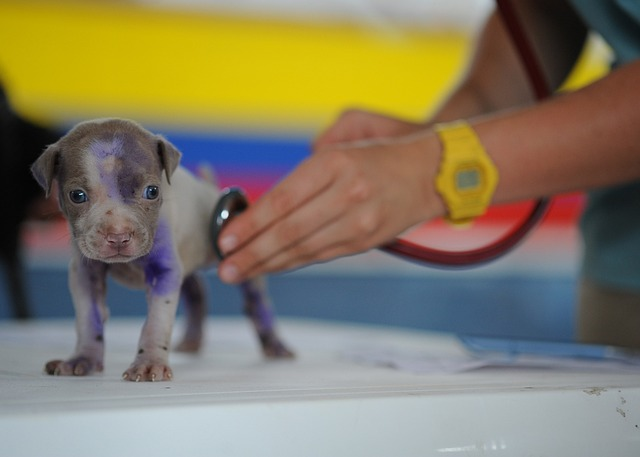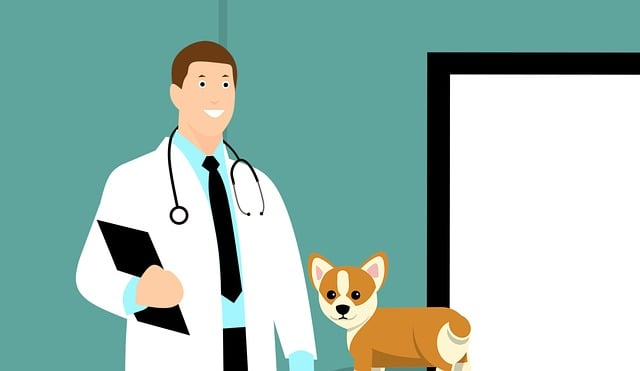When is Dog Diarrhea an Emergency?
As a dog owner, it's essential to understand the difference between a mild case of upset stomach and a potentially life-threatening emergency. Knowing when your canine companion's diarrhea warrants a visit to the vet can be crucial in ensuring their health and well-being.
We'll explore the signs of when dog diarrhea is an emergency, common causes of dog diarrhea, managing non-emergency diarrhea, vulnerable dog populations, and seeking veterinary care. By the end of this post, you'll be equipped to recognize when your furry friend needs immediate attention and how to care for them during a bout of diarrhea.
Short Summary
- Recognize signs of an emergency, such as bloody or black stools, persistent diarrhea and vomiting with inability to keep food down.
- Common causes of diarrhea in dogs include dietary changes/spoiled food, parasites & infections, underlying health conditions and stress/anxiety.
- Seek veterinary care for proper diagnosis & treatment, provide a fecal sample if possible, manage non-emergency cases with bland diet & probiotics monitoring symptoms closely.
Recognizing the Signs of an Emergency

Understanding the signs of an emergency is vital in ensuring your dog receives the necessary care and treatment promptly. In certain situations, dog diarrhea can be a symptom of life-threatening diseases, such as cancer, liver disease, or kidney disease. In these cases, timely emergency vet intervention can make all the difference in your dog's prognosis.
Some of the key indicators that your dog's diarrhea requires immediate medical attention include bloody or black stools, persistent diarrhea, and vomiting accompanied by an inability to keep food down. If your dog presents any of these symptoms, it's crucial to contact your veterinarian as soon as possible to schedule an appointment.
Bloody or Black Stools
Bloody or black stools can be a very serious concern, as they may signal a more severe underlying issue such as a viral or bacterial infection, parvovirus, hemorrhagic gastroenteritis, or even cancer. Bloody stool is a symptom of digestive problems in dogs. Hematochezia and melena are the two types that should be noted when your dog has diarrhoea.
If your dog is having difficulty defecating but is only passing small amounts of watery diarrhea, it may indicate a blockage due to ingestion of a foreign objects, such as a toy. This scenario requires immediate veterinary attention, as it poses a severe threat to your dog's well-being.
Keep a vigilant eye on your canine companion to prevent them from ingesting hazardous materials.
Persistent Diarrhea
Persistent diarrhea is defined as diarrhea that persists for more than a few days and can indicate underlying health issues, such as inflammatory bowel disease, food sensitivity or allergy, or parasites.
Persistent diarrhea can result in dehydration, electrolyte imbalances, and weight loss, significantly impacting a dog's well-being. It is recommended to contact a veterinarian if the diarrhea persists for more than two days.
Potential persistent causes of diarrhea may include dietary changes and spoiled food, parasites and infections, as well as underlying health conditions. To manage persistent diarrhea, it is advised to feed your dog a bland diet and probiotics, closely monitor symptoms and progression, and consult a veterinarian if needed for further management.
Vomiting and Inability to Keep Food Down
Vomiting and an inability to keep food down can be extremely concerning and should be addressed promptly. In some cases, these symptoms may indicate pancreatitis, an inflammation of the pancreas and not just a dog's upset tummy.
Diarrhea and vomiting are common symptoms of pancreatitis in dogs. It is recommended to take a dog with pancreatitis to the vet when the pancreatitis is caused by eating something unusual and results in diarrhea and vomiting.
If your dog is unable to retain water or nourishment, it should be considered a warning sign of an emergency related to canine diarrhea. In these cases, immediate medical attention is crucial to ensure your dog's well-being and address any underlying health concerns.
Common Causes of Dog Diarrhea

Identifying the cause of your dog's diarrhea is a critical step in providing them with the appropriate care and treatment.
Common causes of diarrhea in dogs include dietary changes or spoiled food, parasites and infections, and underlying health conditions. It is also important to note that stress or anxiety can trigger diarrhea in dogs, as the fight or flight response may be activated. A change in normal household routine and boarding may lead to diarrhea symptoms including soft stools and other mild bouts of diarrhea which may get worse if not treated.
In the following subsections, we will delve deeper into these common causes, helping you to better understand the potential sources of your dog's discomfort and determine the appropriate course of action to alleviate their symptoms.
Dietary Changes and Spoiled Food
Dietary changes, such as switching to a new dog food, and consuming spoiled food or garbage, can cause diarrhea in dogs. Variations in environment, routine, or diet may contribute to dietary changes in dogs, disrupting their digestive system and resulting in diarrhea.
If your dog is exhibiting signs of straining during bowel movements, it may be indicative of a blockage (such as foreign objects) in the digestive tract. In this case, it is recommended to seek veterinary advice.
Being aware of your dog's eating habits and ensuring they are consuming a balanced, appropriate diet can help prevent diarrhea related to dietary changes and spoiled food. Dogs that have access to your garbage cans may result in spoiled food ingestion. Remember that changing dog food will cause mild intestinal distress in some dogs. Slowly incorporating a new food little by little will help avoid the mild intestinal distress that a change in food or water source causes.
Parasites and Infections
Parasites and infections are another common cause of diarrhea in dogs.
Some of the most prevalent intestinal parasites include roundworms, giardia, whipworms, coccidia, and hookworms. It is essential to treat these parasites promptly, as untreated intestinal parasites can be life-threatening for puppies and weaken the immune system of adult dogs.
Viral infections, such as parvovirus and coronavirus, and bacterial infections like salmonella, are also known to cause diarrhea in dogs. It is crucial to seek veterinary care if you suspect your dog has contracted a parasite or infection, as early intervention can lead to a more favorable outcome and prevent the spread of the infection to other animals.
Underlying Health Conditions
Underlying health conditions, such as arthritis, cancer, kidney disease, and obesity, can also cause diarrhea in dogs. These chronic conditions may result in a weakened immune system or illness, increasing their susceptibility to diarrhea. Infections, parasites, and chronic illnesses have been known to be associated with canine diarrhea.
If your dog is experiencing recurrent episodes of diarrhea, it is advised to reach out to your veterinarian immediately to treat dog diarrhea, as this may indicate a more severe underlying health condition. Early diagnosis and intervention can help manage the condition and prevent further complications.
Managing Non-Emergency Diarrhea

While diarrhea can be a sign of a serious health issue, it is important to note that mild cases of diarrhea can often be managed at home.
Managing non-emergency diarrhea involves carefully monitoring your dog's symptoms, providing a bland diet, and supplementing with probiotics if necessary. By taking these steps, you can help alleviate your dog's discomfort and prevent the condition from worsening.
It is not recommended to give your dog human medications such as Immodium, Kaopectate or Pepto Bismol as these human medications may cause other health issues in your dog and potential medical complications.
However, even mild chronic diarrhea can result in dehydration, so it is essential to monitor symptoms and progression closely. If your dog's diarrhea persists or worsens, it is crucial to seek emergency vet care to address any underlying health concerns and receive appropriate treatment.
Bland Diet and Probiotics
A bland diet consists of digestible ingredients like lamb and white rice (processed rice, not whole grains), which can help soothe your dog's upset stomach. This type of bland food diet is particularly beneficial for dogs experiencing diarrhea or gastrointestinal distress.
Suitable lean protein sources for a bland diet include skinless chicken, cooked eggs, lean beef, and white fish, while simple carbohydrates like cooked processed white rice, sweet potatoes, or regular skinless potatoes can also be added. Your veterinarian may also prescribe specially formulated dog foods for their bland diet.
Probiotics can be beneficial in restoring normal intestinal flora in dogs, particularly if diarrhea is the result of antibiotics. By providing your dog with probiotics, you can help restore the balance of beneficial bacteria in their gut, promoting optimal digestion and reducing the severity of diarrhea.
Monitoring Symptoms and Progression
Monitoring symptoms and progression is essential in managing non-emergency diarrhea in dogs. Some other symptoms of dog diarrhea include loose or watery stools, frequent defecation, regurgitation, decreased appetite, fatigue, and dehydration.
By keeping a close eye on these other symptoms and their progression, you can assess whether the diarrhea in dogs condition is improving or deteriorating, and determine if veterinary intervention is necessary.
If your dog's symptoms worsen or persist for more than a few days, a dog will require veterinary attention immediately. Your veterinarian can provide a diagnosis and treatment plan to help manage the condition and ensure your dog's health and well-being.
Vulnerable Dog Populations

Certain dog populations are more susceptible to diarrhea in dogs than others, making it essential to take extra precautions when caring for these vulnerable groups. Puppies, senior dogs, and immunocompromised dogs are more prone to diarrhea than adult dogs.
In the following subsections, we will discuss the reasons behind their vulnerability and the specific care considerations for each group.
Puppies
Puppies are particularly vulnerable to diarrhea in dogs due to their immature immune systems, which make them more prone to infections and other illnesses.
One of the most dangerous viruses for puppies is parvovirus, a highly contagious and potentially fatal virus that can lead to diarrhea and vomiting. Puppies aged six weeks to six months are most vulnerable to parvovirus.
To protect puppies from parvovirus, it is essential to follow the parvo vaccination series recommended by your veterinarian, beginning at 6 to 8 weeks of age and repeated every 3-4 weeks until the puppy is at least 14 to 16 weeks old. This vaccination can help prevent the spread of the virus and protect your puppy's health.
Senior Dogs
Senior dogs are more susceptible to diarrhea due to the development of chronic illnesses, such as diabetes and kidney disease, which can increase their vulnerability. Some of the most prevalent causes of diarrhea in elderly canines include infectious diseases, viral infections, small intestinal dysbiosis, food-responsive disease, and parasites.
To address non-emergency diarrhea in senior dogs, withholding food for a period of 12 to 24 hours and providing water in small amounts at regular intervals can help eliminate the source of the disturbance and allow the gastrointestinal tract to stabilize. If loose stool persists or bloody diarrhea lasts for more than two days, it is recommended to contact your veterinarian.
Immunocompromised Dogs
Immunocompromised dogs have a weakened immune system, which renders them more prone to infections and other illnesses, such as diarrhea. The prevailing causes of diarrhea in immunocompromised dogs include erosive or ulcerative enteropathies, inflammatory bowel disease (IBD), neoplastic disorders, bacterial infections, and viral infections. A compromised immune system can be supported with the right probiotic blend.
In cases where your immunocompromised dog is experiencing diarrhea, it is crucial to seek veterinary care and follow the recommended treatment plan. Early intervention can help manage the condition and prevent further complications, ensuring the health and well-being of your furry friend.
Seeking Veterinary Care

When your dog is experiencing diarrhea, it is essential to know when to seek veterinary care. Even if the symptoms appear mild, it is always a good idea to consult your veterinarian to determine the best course of action and receive appropriate treatment, and always in the case of bloody diarrhea.
In some cases, your veterinarian may request a fecal sample to accurately diagnose intestinal parasites and other health conditions.
In the following subsections, we will discuss the importance of providing a fecal sample and the treatment options available for canine diarrhea.
Providing a Fecal Sample
A fecal sample is a sample of your dog's feces that can be used to accurately diagnose intestinal parasites and other health conditions. To collect a fecal sample from your dog, a clean container should be used to catch a fresh sample that is no more than 24 hours old.
It is recommended to collect at least a 1-inch chunk if feasible, and disposable gloves or a plastic bag should be worn over the hand to collect the feces. Afterward, hands should be washed.
When transporting the sample to the veterinarian, it is recommended to bring the sample in a plastic bag or sealed container. Providing a fecal sample can help your veterinarian accurately diagnose the cause of your dog's diarrhea and recommend the most effective treatment plan.
Treatment Options
Common treatments for canine diarrhea include providing a bland diet, supplementing with probiotics, and administering medications such as loperamide or antibiotics. It is essential to follow your veterinarian's recommendations and avoid administering over-the-counter medications or human medications without their approval, as these may not be safe or effective for your dog.
By seeking veterinary care and following the recommended treatment plan, you can ensure that your dog's diarrhea is properly managed and minimize the risk of complications. Remember, it is always better to err on the side of caution and consult your veterinarian if you have any concerns about your dog's health.

In conclusion, understanding the signs of an emergency and the common causes of dog diarrhea is crucial in providing the best care for your canine companion. By managing non-emergency diarrhea, recognizing vulnerable dog populations, and seeking veterinary care when necessary, you can ensure your dog's health and well-being.
As a responsible pet owner, it is essential to be vigilant and proactive in addressing any health concerns that may arise, and together with your veterinarian, you can help your furry friend live a happy and healthy life.
Frequently Asked Questions
When should I take my dog to the hospital for diarrhea?
It is best to take your dog to the hospital as soon as possible if they have had diarrhea for 24 hours or more.
If there are any other symptoms such as lethargy, loss of appetite, black, dry, or bloody diarrhea, or vomiting, it is important to seek emergency veterinary care right away.
How do I know if my dogs diarrhea is serious?
If your dog has diarrhea accompanied by other signs of illness such as weakness, fever, vomiting, abdominal pain, loss of appetite or dehydration, it is important to seek medical attention from a veterinarian as soon as possible.
Monitor your dog's bowel movements for any changes and if more than two episodes occur, contact your vet for further advice.
How many days is too many for a dog to have diarrhea?
It's important to monitor your dog's diarrhea and contact your vet if it persists for more than a couple of days. While mild diarrhea can often be resolved within two to four days, any long-term symptoms should be examined by a professional.
Is it OK for a dog to have diarrhea for 3 days?
It is not advisable for a dog to have diarrhea for 3 days, as it may be a sign of an underlying health problem.
It is best to contact your veterinarian for advice on how to help your pup and determine the cause of their diarrhea.
My dog has diarrhea but is acting normal?
You should observe if there is any improvement in the next 24 hours and if not, then it's time to contact your vet for help. Look out for any changes in appetite, lethargy or other signs of distress which may require a veterinary visit.
Monitor your pet's symptoms closely and take action when needed.
